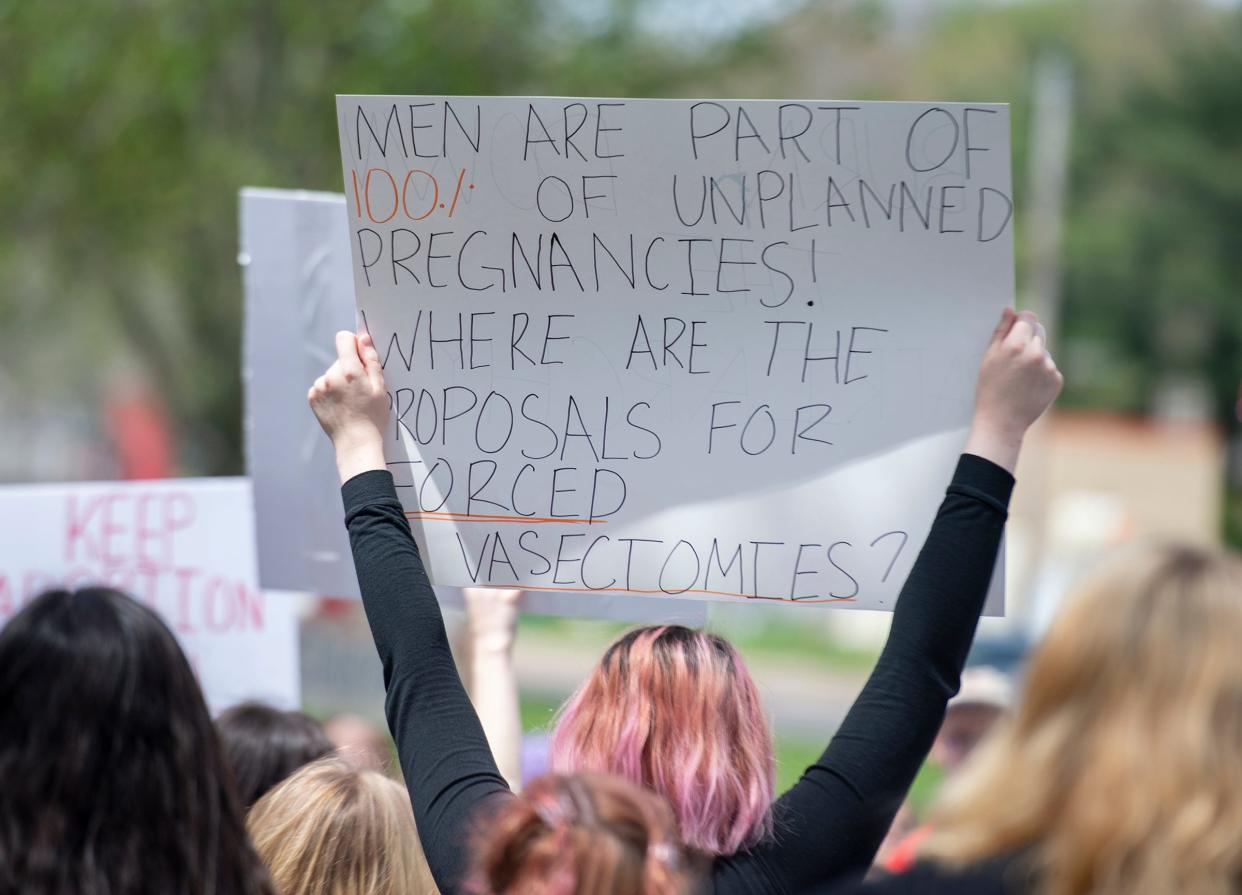KSU professor offers analysis of implications of SCOTUS leak

A political science professor at Kent State University says a decision by the Supreme Court to overturn Roe v. Wade could have wider implications on privacy rights in general.
Earlier this month, a leaked draft Supreme Court opinion indicated that the high court may be on the cusp of upending the landmark 1973 decision that established a constitutional right to abortion.
More: Streetsboro hopes to bring PARTA bus routes to city to help with labor shortage
More: Kent State University students rally for reproductive rights
In the draft, Justice Samuel Alito, writing for the majority, argues that Roe was wrongly decided. In the draft, Alito writes that rights not specifically enumerated in the constitution, unless rooted in American history and traditions, shouldn't be granted.

Christopher Banks, a political science professor at Kent State who specializes in law and courts, said that, theoretically, despite Alito's assertion that Roe v. Wade will be the only case where this standard will be applied, one could reason that this decision paves the way for a rollback of privacy rights generally, and other rights not explicitly named in the constitution, but are inferred through various Supreme Court decisions.
"One notable example could be gun rights in terms of the Second Amendment," Banks said. "Nowhere in the Constitution does it say that there is an individual right to self defense in the home." That right was inserted into the understanding of the Second Amendment by the case District of Columbia v. Heller, when the court ruled that restrictions on handgun ownership in D.C. violated the Second Amendment."
The content of the leaked draft, Banks said, does nothing to preserve the myth of the apolitical nature of America's highest judicial body.
"Their judicial philosophy is going to dictate outcomes, and those outcomes are going to be driven, in part, by their preferences, politically or otherwise," said Banks. While judges and lawyers are trained to say that their decisions aren't influenced by political preferences, Banks said it's clear that the law is changing according to the inclinations of the conservative majority on the court.
According to Banks, the effect of public opinion on the court's decision making process is debatable. Some studies find that the public's feelings on an issue before the court do sway their decision, while others find the effect negligible.
"One important thing to keep in mind," Banks said, "is one particular view advanced by Robert Dahl." Dahl, a political theorist, argued that should the Supreme Court step outside the wishes of the national political coalition, the court's work will eventually respond.
Banks explains that this is part of what Alito is arguing: that the right to abortion isn't something anyone actually wanted because, after the Roe v. Wade decision, that right wasn't codified in the U.S. Constitution by elected representatives.
In an article he penned in the 90's during his graduate career, Banks wrote that former Justice William O. Douglas made the argument that decisions forming various precedents have a higher probability of being quickly overturned anytime there is a sudden change in the makeup of the court over a short period of time. Douglas called this "constitutional flux."
"That's precisely what's going on right now. You have three new Trump appointees coalescing with other conservative justices on the court that have been there — Roberts and Thomas in particular — to ultimately form an alliance, or coalition, that's going to revisit old precedents with an eye toward re-shaping the law in a way that they think is consistent with their own political and judicial philosophies."
Ohioans can expect to feel the squeeze of more restrictive abortion legislation should Roe v. Wade ultimately be overturned. Ohio Republicans are already crafting a bill that would ban abortions after six weeks, and are considering crafting a law that would outright ban abortion should Roe be overturned.
A number of Ohio Democrats are sponsoring an amendment to the state constitution that would ensure contraceptive access and the right to abortion procedures.
Banks believes that more opportunities for the high court to diminish rights protections they don't agree with will present themselves in the short-term.
"If the right to privacy is ultimately threatened...a whole host of rights could be diminished quite severely," Banks said. "You could extend that to just about anything that involves government action over the individual in terms of individual autonomous rights."
Contact reporter Derek Krieder at dkreider@gannett.com
This article originally appeared on Record-Courier: KSU professor explains implications of Roe v. Wade overturn draft

